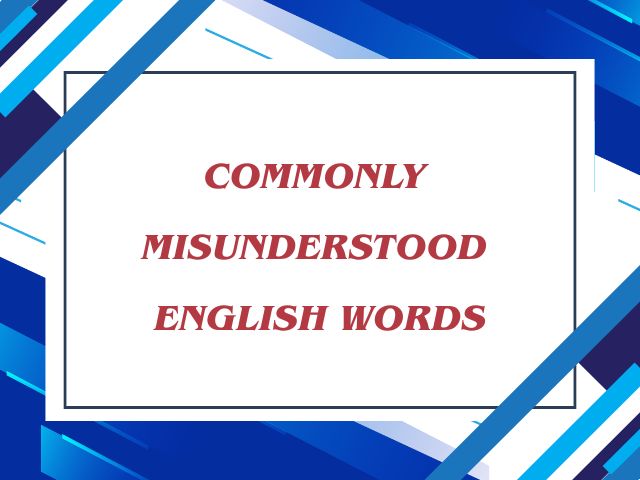Bài Dịch Việt Anh Về Đầu Tư Nước Ngoài - Số 54
(Tiếp theo Bài 53 – 15 Sept 2013)
Trong phần dịch này Thầy Cô đã sưu tầm những thuật ngữ và văn bản về đầu tư nước ngoài, là kiến thức hữu ích cho các bạn học viên đang theo học IELTS, chứng chỉ TOEFL ITP, các lớp chứng chỉ TOEIC, … Hãy cùng đọc và ghi nhớ nhé!
“Các quy định Pháp luật về đầu tư và bảo hộ đầu tư nước ngoài tại VN = Legal documents on foreign investment and protection of investment in VN” dựa trên sách được phát hành bởi Nhà xuất Bản Chính Trị Quốc Gia.
Quy Định Về Chế Độ Thẩm Định Các Dự Án Có Vốn Đầu Tư Trực Tiếp Của Nước Ngoài (Ban hành kèm Quyết định số 366-HĐBT ngày 7-11-1991 của Hội Đồng Bộ Trưởng)
II. ĐỐI VỚI DỰ ÁN NHÓM B
Điều 10. Việc cấp hoặc không cấp giấy phép cho các dự án nhóm B được thực hiện theo quyết định của Chủ tịch Hội đồng Bộ trưởng trên cơ sở kiến nghị của UBNN về HTĐT và Chủ tịch Hội đồng thẩm định Nhà nước.
Điều 11. Thời gian thẩm định dự án.
- Trong thời hạn 5 ngày, kể từ khi tiếp nhận hồ sơ dự án, UBNN về HTĐT gửi dự án đến Ủy ban Kế hoạch Nhà nước, Bộ Tài chính, Bộ Thương mại và Du lịch Ủy ban Khoa học Nhà nước, Bộ Xây dựng, Ngân hàng Nhà nước, Bộ quản lý ngành kinh tế - kỹ thuật và những Bộ khác có liên quan;
- Trong vòng 25 ngày, kể từ khi nhận được hồ sơ dự án, các cơ quan nói trên thông báo bằng văn bản cho UBNN về HTĐT ý kiến chất vấn và gợi ý chủ đầu tư và trong vòng 40 ngày, kể từ ngày nhận được hồ sơ dự án, gửi ý kiến đánh giá của mình về nội dung dự án, trước hết về những vấn đề thuộc phạm vi quản lý của mình.
- Chậm nhất trong thời hạn 50 ngày, kể từ khi nhận được hồ sơ dự án, UBNN về HTĐT và Chủ tịch Hội đồng thẩm định Nhà nước trình kiến nghị lên Chủ tịch Hội đồng Bộ trưởng xem xét.
- Chủ tịch Hội đồng Bộ trưởng có quyết định chính thức trong vòng 15 ngày, kể từ khi nhận được văn bản tờ trình của UBNN về HTĐT và Chủ tịch Hội đồng thẩm định Nhà nước.
- Sau khi có quyết định của Chủ tịch Hội đồng Bộ trưởng, UBNN về HTĐT soạn thảo văn bản trả lời cho các chủ đầu tư.
III. ĐỐI VỚI DỰ ÁN NHÓM C
Điều 12. Việc xem xét cấp giấy phép cho các dự án nhóm C thuộc quyết định của UBNN về HTĐT.
Điều 13. Khi xem xét dự án thuộc nhóm này, UBNN về HTĐT cần lấy ý kiến bằng văn bản của các cơ quan: Ủy ban Kế hoạch Nhà nước, Ủy ban Khoa học Nhà nước, Bộ Thương mại và Du lịch, Bộ Tài chính, Ngân hàng Nhà nước và Bộ quản lý ngành. Việc góp ý kiến được thực hiện trong thời gian 40 ngày, kể từ ngày khi nhận được hồ sơ dự án; quá thời hạn đó mà các ngành không có văn bản góp ý kiến thì coi như không có ý kiến về dự án của chủ đầu tư. Nếu có những ý kiến khác nhau quan trọng, UBNN về HTĐT cần xin ý kiến Chủ tịch Hội đồng Bộ trưởng.
CHƯƠNG IV ĐIỀU KHOẢN CUỐI CÙNG
Điều 14. Quy định này có hiệu lực kề từ ngày ban hành.
Điều 15. Chủ nhiệm UBNN về HTĐT và Chủ nhiệm Ủy ban Kế hoạch Nhà nước chịu trách nhiệm hướng dẫn cụ thể thi hành Quy định này.
TM HỘI ĐỒNG BỘ TRƯỞNG KT. CHỦ TỊCH PHÓ CHỦ TỊCH PHAN VĂN KHẢI | Regulations On Evaluations Of Projects With Foreign Owned Capital
(Issued with Decision No. 366-HDBT of the Council of Ministers dated 7 November 1991)
II. IN RESPECT OF THE GROUP B PROJECTS Article 10. The Chairman of the Council of Ministers shall, based on the recommendations of the State Committeefor Coopearation and Investment and the Chairman of the National Council for Project Evaluation decide whether to grant a licence in respect of a group B project.
Điều 11. Time for assessment of projects.
- Within 5 days from the date of receipt of an application and project documents, the SSCI shall send copies of the project documents to the State Planning Committee, Ministry of Finance, Ministry of Commerce and Tourism, the State Committee for Science, the Ministry of Construction, the State Bank of VN, the Ministries in charge of the relevant economic and technical branch and other ministries concerned;
- Within twenty five (25) days from the date of receipt of the application and project documents, the above-mentioned bodies shall notify the SCCI in writing of any further information or further explanation required from the investor. Within forty (40) days from the date of receipt of the application and project documents, the above-mentioned bodies shall submit their recommendations on the project, concerning on the matters which are within their area of management. - Within fifty (50) days from the date of receipt of the application and project documents, the SCCI and the Chairman of the National Council for Project Evaluation shall submit their recommendations to the Chairman of the Council of Ministers for his consideration. - The Chairman of the Council of Ministers shall make an official decision within fifteen (15) days from the date of receipt of the submission from the SCCI and the Chairman of the National Council for Project Evaluation.
- The SCCI shall prepare a letter of reply to the investors based on the decision of the Chairman of the Council of Ministers.
III. IN RESPECT OF THE GROUP C PROJECTS Article 12. The State Committee for Co-operation and Invesment shall have the power to consider and grant licence for group C projects.
Article 13. When considering the projects of this group, the SCCI shall obtain recommendation in writing from the following bodies: The State Planning Committee, the State Committee for Science, the Ministry of Cmmerce and Tourism, the Minkstry of Finance, the State Bank of Vietnam, and the Ministry concerned. Recommendations shall be provided within forty (40) days from the date of receipt of the project file and application, If, after forty (40) days the above-mentioned bodies have not sent their recommendations in writing they shall be considered as not having any recommendations to make on the project of the investor concerned. In the event that there are differing recommendations, the SCCI shall seek the opinion of the Chairman of the Council of Ministers. CHAPTER IV FINAL PROVISIONS
Artcle 14. This Regulation shall be of full force and effect as of the date of its promulgation.
Article 15. The Chairman of the State Committee for Co-operation and the Chairman of the State Planning Committee shall be responsible for implementing this Regulation.
ON BEHALF OF THE COUNCIL OF MNISTERS FOR THE CHAIRMAN VICE CHAIRMAN PHAN VAN KHẢI
|
Idiomatic American English Settling the Score A: He made a monkey out of me with his wisecracks about my abilities.
B: Don’t flip your lid. Let bygones be bygones. A: Not on your life I’m going to settle the score. B. You should have a man-to-man talk and have it out instead of trying to get even.
Vocabulary: 1. make a monkey out of someone (v) cause to look foolish 2. wisecrack (n) sarcastic or nasty remark 3. flip one’s lid (v) get angry; go crazy; become very excited 4. Let bygones be bygones – Forget differences that happened in the past 5. Not in your life – Definitely not, no way 6. settle the score (v) retaliate, pay someone back for the past hurt 7. man-to-man (adj) frank, direct 8. have it out with someone (v) discuss a conflict or misunderstanding with the other person involved 9. get even (v) get revenge, settle the score
Proverb: 1. A little learning is a dangerous thing. 2. A little of everything is nothing at all. 3. A living dog is better than a dead lion. 4. A long road tests a horse, long drawn-out affairs test a friend. 5. A man can do no more than he can. 6. A man is known by the company he keeps. 7. A man is master in his house. 8. A merry heart goes all the way. 9. A miserly father makes a prodigal son. 10. A monkey dressed in silk is still a monkey. | Đặc ngữ(thành ngữ) Anh Mỹ Trả thù A: Anh ta làm tôi trở thành trò cười bằng những lời chỉ trích cay nghiệt về khả năng của tôi. B: Đừng nóng giận. Thôi, cho qua đi. A: Không bao giờ. Tôi sẽ trả thù.
B: Bạn nên thẳng thắn nói chuyện và giải quyết thay vì trả thù.
Từ vựng: 1. (v) làm ai trở thành ngớ ngẩn, trò cười
2. (n) lời chỉ trích cay nghiệt 3. (v) nổi giận; nổi điên; phấn khởi, hào hứng vì (chuyện gì) 4. Quên những sự bất đồng đã xảy ra trong quá khứ 5. Không bao giờ 6. (v) trả thù,
7. (adj) thẳng thắn 8. (v) giải quyết mâu thuẫn, bất đồng với ai
9. (v) trả thù
Tục ngữ: 1. Dốt đặc hơn hay chữ lỏng. 2. Cái gì cũng một chút thì chẳng ra gì. 3. Người sống, đống vàng. 4. Thức đêm mới biết đêm dài, ở lâu mới biết là người có nhân. 5. Lực bấ tong tâm. 6. Gần mực thì đen, gần đèn thì sáng. 7. Giang sơn đâu, anh hùng đấy. 8. Khi vui người vỗ tay vào. 9. Cha hà tiện, con hoang phí. 10. Cốt khỉ vẫn là khỉ.
|
(English Idioms - Source: Internet)
Unit 1: Don't make me laugh!
Feifei overheard a conversation at the water cooler: the boss is going to give everyone a free holiday. But Jen thinks it's too good to be true...
The script for this programme:
Jennifer: Hi I'm Jennifer and this is The English We Speak. In this programme, we teach you about English words or phrases which you might not find in the dictionary. Here comes Feifei.
Feifei: Hello Jen, hi everyone. Hey, Jen, I have some news for you.
Jennifer: Oh yes, what is it?
Feifei: I was standing next to the water cooler, when I heard the boss talking. He said that he is going to give everyone at work a holiday! For free!
Jennifer: A free holiday?
Feifei: Yes, I'm sure that's what he said.
Jennifer: Oh, don't make me laugh!
Feifei: It does sound too good to be true. Jen said: "Don't make me laugh." In English, this is something you can say when you think something is not going to happen.
Jennifer: And I don't think the boss is going to give us a holiday, especially a free one. The boss giving us special treats...? Don't make me laugh.
Feifei: Let's hear some more examples of this phrase.
A: I heard that Justin Bieber is going to play a gig at our Christmas party!
B: Don't make me laugh - he's far too famous to come here.
A: Do you think that the Scotland football team could win the World Cup one day?
B: Don't make me laugh - they've never won anything!
Feifei: So, 'don't make me laugh' is a great way to say that you think something won't happen.
Jennifer: Like our boss giving away free holidays. So I wonder what he did mean?
Feifei: Oooh, here's an email from him. It says: "I'm going away for two weeks. You will all need
Jennifer: You see? I told you he wouldn't give away free holidays. He wants a work-free holiday: that means he doesn't want to think about work while he's away.
Feifei: Oh well. It seems I didn't hear him properly. It was nice while it lasted!
Jennifer: So, are you planning to work 'extra hard' while he's away?
Feifei: Don't make me laugh! I'm not working hard, I'm going to take advantage and have a relaxing two weeks without the boss here!
Jennifer: That sounds like a good plan. Join us again for another edition of The English We Speak from BBC Learning English. Bye for now!
Feifei: Bye!
Unit 2: A leopard can't change its spots
Feifei and Jen are visiting the zoo. Jen likes the leopards in particular, which inspires her to talk about one of her favourite phrases in English. Listen to this programme to find out more.
Can a leopard change its spots?
Jennifer: Hello, I'm Jennifer and this is The English We Speak. I'm with Feifei, and we're here at the zoo!
Feifei: Hi there everyone. Yes, the sun is out, so we thought we would come and take a look at some of our favourite animals. We've already seen the elephants and penguins – I love the penguins, they're so funny.
Jennifer: Well we're moving on now to my favourites – the big cats!
Feifei: According to this leaflet, they have lions, tigers, pumas and leopards!
Jennifer: Fantastic – I love leopards. They're so beautiful and they also feature in one of my
Feifei: Let me guess, it's "a leopard can't change its spots"?
Jennifer: Absolutely, Feifei. The phrase "a leopard can't change its spots" is used to describe a person's character, particularly if they have some bad habits.
Feifei: Just as a leopard can't change the spots on its fur, a person can't change their personality, even if they say they have. It's part of them.
Jennifer: Let's hear some examples of how you might use this phrase.
John promised me that he would stay out of trouble at school, but I don't believe him. A leopard can't change its spots.
Katie used to have a reputation for gossiping and spreading rumours. I've heard she's changed now, but I don't trust her: a leopard can't change its spots.
Feifei: Great phrase. Let's see if we can find a real life leopard then!
Jennifer: Well, the big cat area is over there, according to this map. Oh look! I can see lions… They have little baby ones too… Ah! But where are the leopards?
Feifei: Er, Jen…
Jennifer: They must be here somewhere, a big spotty cat like that can't be too hard to find.
Feifei: (whispering) Jen, I think you should…
Jennifer: Hurry, they must be this way. I want to see a leopard right now! A leopard can't change
Feifei: I think you should turn around!
Jennifer: (terrified) Oh. Hello Mr Leopard. You're a lot bigger in real life…
Feifei: (whispering) Join us again for another edition of The English We Speak from BBC Learning English… Bye!
(roar)
Jennifer: Here kitty, kitty, kitty. Nice kitty…
(roar)
Unit 3: A sharp tongue
Today's Phrase: If someone is described as having a sharp tongue it means they say things that are critical and harsh.
Examples:
Don't worry about what the boss says, he has a sharp tongue.
Stephen's sharp tongue meant that nobody would ask him for advice.
Take note:
If someone tells you to hold your tongue it means stop talking, particularly because they don't like what you are saying.
Example:
I'm always upsetting people at the meeting so next time I'm going to hold my tongue.
Interesting fact:
The photo shows an Indian man pushing a sword across his tongue in a ritual for Qudri Rafai Junoon Ali Sai, a local Sufi saint who died in 1971.
Unit 4: Playing with fire
An artist plays with fire at the International Fire Festival in Kiev.
Today's Phrase: If you are playing with fire you are doing something which could be dangerous.
Examples:
Climbing that mountain in this bad weather is playing with fire.
He was playing with fire when he swam across that river at night!
Take note: If you add fuel to the fire it means you make a bad situation even worse.
Examples:
John's poor excuse for being late just added fuel to the fire. Jane was furious.
Interesting fact:
The verb 'to fire' can also mean to shoot. In military battles, soldiers were commanded to "Fire!" when they had to start shooting at the enemy. 'Enemy fire' is what they got in return
Unit 5: To fly the nest
Today's Phrase: To fly the nest means to leave your parents' home for the first time to go and live somewhere else.
Examples:
When David started university he had to fly the nest and live alone.
All the children have flown the nest so Mum now has a lot of spare time.
Take note: A nest egg is an amount of money you have saved to use in the future.
Examples:
Jane is going to use her nest egg to buy a big house by the sea.
Interesting fact: The osprey in the photograph flew from West Africa to Scotland to breed. The egg in the nest is thought to have been her 50th egg to have hatched
(Hết phần Bài dịch 54 – 15 Sept 2013 – N.V.Công)




